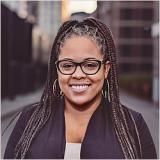Find a Therapist near New York City, NY
| Prev | Next |
Find a Therapist in New York City with GoodTherapy
It’s normal to experience mental health issues and relationship problems. Talking to a licensed therapist can help. Therapy can teach you more about yourself and your mental health concerns in a healing way. Many therapies are evidence-based and have proven effective.
Since 2007, GoodTherapy has helped people like you connect with ethical, compassionate counselors and therapists. The therapists listed above, who practice therapy in New York City, are trained to protect client confidentiality and privacy. In keeping with our high membership standards, these mental health professionals are also committed to eliminating the stigma that keeps many people from seeking help.
If you are looking for a specific type of therapist, you can search for marriage or couples counseling in New York City or find a child psychologist or family therapist in NYC. You can also connect with New York City therapists who specialize in treating anxiety or depression. In addition, some therapists provide group therapy, which is typically a therapist-led session with multiple people.
Beliefs about how much therapy costs may deter some people from finding a therapist. It’s a good idea to contact therapists you’re interested in and ask about insurance, sliding-scale fees, payment plans, and other options to stay within your budget.
Rest assured there are qualified therapists in New York City who can treat a variety of concerns, including family conflict, relationship issues, anxiety, or depression. With our directory, the right therapist is easy to find.
List Your Practice on GoodTherapy
Are you a therapist or mental health professional looking for new ways to get referrals and market your practice in New York City and surrounding areas? Keeping up to date with professional requirements and increasing your online presence are just two of the many benefits of joining GoodTherapy. Start connecting with clients and earning online continuing education credits today!
Mental Health Statistics for New York City
With more than double the population of any other U.S. city, New York faces an especially daunting mental health crisis. A 2015 report from the New York City Department of Health and Mental Hygiene found that at least one in five adult residents is likely to experience a mental health issue in any given year. Minority and lower-income residents are disproportionately affected and more likely to be misdiagnosed or untreated.
Major depression is the single biggest source of disability in New York City, with about 8% of adult New Yorkers reporting symptoms of depression each year. Fewer than 40% receive care for the condition.
Substance use is among the leading causes of premature death in every neighborhood in New York City. Among people ages 18 to 64, more than 70,000 emergency room visits and 1,800 deaths can be traced to alcohol use annually. In line with national trends, opioid-related overdoses have increased in recent years, as have deaths and psychotic episodes related to synthetic marijuana use. Between depression and substance use, New York City loses an estimated $14 billion in productivity each year.
As with many metropolitan areas, homelessness is a major concern in New York City. An estimated 35% of people who have stayed in NYC Department of Homeless Services shelters have a serious mental health issue; the number is higher among those who live on the streets.
Children and adolescents in NYC also struggle with mental health. About 8% of high school students in New York City say they have attempted suicide, and 73,000 report sadness or hopelessness each month. But there is some reason for optimism: in July 2018, New York became the first state to enact a law updating the mental health curriculum at the elementary, middle, and high school levels.
References:
- Kearney, L. (2015, November 12). New York City finds one in five adults has mental health problems. Retrieved from https://www.reuters.com/article/us-new-york-mentalhealth-idUSKCN0T12OO20151112
- QuickFacts: New York City. (2017). Retrieved from https://www.census.gov/quickfacts/fact/table/newyorkcitynewyork,US/PST045216
- ThriveNYC: Year Two Update [PDF]. (2018). Retrieved from https://thrivenyc.cityofnewyork.us/wp-content/uploads/2018/02/Thrive-Year-2-Web-Version.pdf
- Understanding New York City’s Mental Health Challenge. (n.d.). Retrieved from https://www1.nyc.gov/nyc-resources/thrivenyc.page









